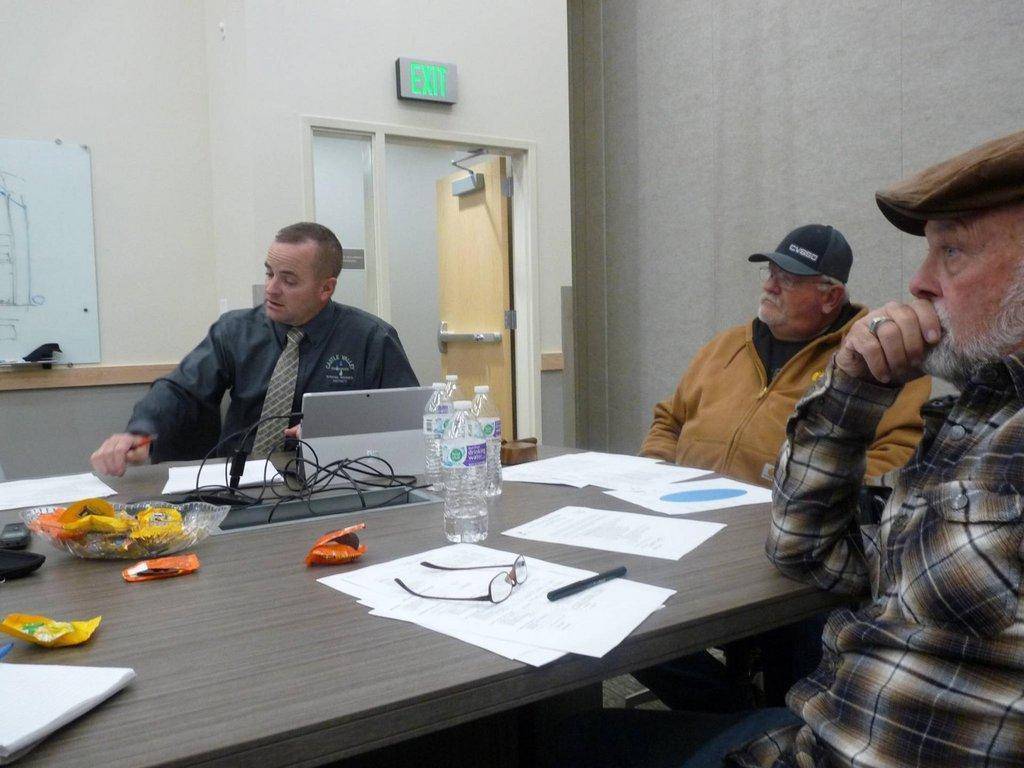By Julie Johansen
The Castle Valley Special Service District (CVSSD) hosted a public hearing on Thursday evening to receive comments with respect to obtaining a Community Impact Board (CIB) loan and grant in the amounts of $1,000,000 and $772,000, respectively, for 2020 district capital improvement projects.
Following the approval of the minutes from the Oct. 17 meeting, a motion to open the public hearing was made. However, there were no guests present to make any comments, so the hearing was closed.
Acting CVSSD Chairman Jeff Tuttle then turned the discussion to construction projects and related matters as two interested citizens joined the meeting. Emery County Commissioner Kent Wilson recommended listening to the guests even though the hearing had closed.
Mike and Jason Kava had questions regarding water lines and storm drains in the southeast section of Castle Dale. Jacob Sharp, CVSSD Manager, replied that those expenses fell under maintenance and not capital expense, which the CIB funding would be used for. They were advised to put these concerns on Castle Dale City’s list for work next year.
Discussion of construction projects continued, including chipping and sealing, which are finished for 2019. Curb and gutter projects are continuing in Orangeville, Ferron and Huntington and are nearing completion. Sewer and water projects are held up pending the completion of the campground expansion in Huntington. Street projects are finished, CVSSD reported.
The amended budget for the general fund for 2019 was balanced with $2,770,000 in revenues and expenditures, the capital project fund at $2,148,000 and the debt service fund balanced at $1,448,850. This budget was approved by board. A public hearing regarding the final budget for 2019 will take place on Dec. 17 during the Emery County Commission meeting.
Discussion then continued about secondary water metering and costs. This concern was started by legislative action and becomes effective, if not changed during the next legislative session, in April of 2020. It had appeared as though the rural areas of the state would possibly get an exemption, but it was said that idea seems to have been scrapped. Many exemptions are being considered for this expensive action. Some have felt that each water district should be able to decide for themselves. No legislation has been changed at this time but many proposals are being considered.

